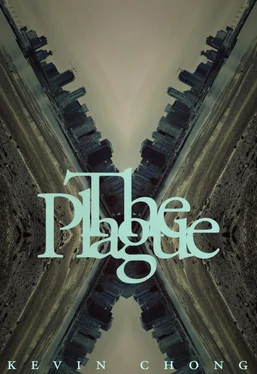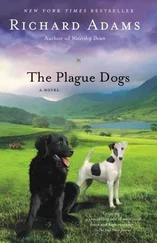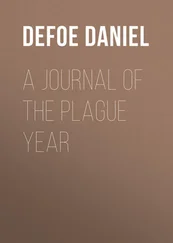Raymond Siddhu’s experience of the deaths of others felt like a time-delayed bomb. For the first two months, he’d witnessed only the collateral damage wrought by the disease. Since the holidays, there had been funerals galore. The week before, he’d attended three funerals of former co-workers at his old newspaper. All of them were held at the city’s old pressman’s bar. The cartoon renderings of old editors, reporters, and photographers had been taken down years ago when the bar became a live-music venue and then a Belgian beer bar. But the faces—more lined, greying, and voluminous than before—were their own caricatures. There would have been more people at each service-cum-wake, but so many of Siddhu’s former colleagues had already retired to the suburbs or islands.
“I keep expecting him to jump out from behind a curtain and yell surprise !” one ex-journalist, whose cubicle was adjacent to Siddhu in his first two years at the paper, told him.
“The living wake is all the rage these days,” Siddhu observed. “People don’t know when they’re going to go, and they get fed up with hiding at home, so they invite everyone over for drinks.”
“I go out in the evenings more than I have in the past ten years. The city has never been livelier since the night funerals started.”
“That would be a great pull quote,” Siddhu said. “Can I use it?”
“For you, anything,” he said. “But make sure you note that I was on my fourth drink.” The man spilled his rum and Coke as he was caught up in a fit of coughing. Siddhu stepped back and slipped his face mask on. This, like many other things, was no longer considered an impolite gesture.
Siddhu went to bed with a happy buzz. He knew that the next day would be his last in Vancouver. If nothing went wrong. He checked out of his hotel room in the morning, after having packed his Costco clothes in a duffle bag left on his bed with a note saying they could be donated or destroyed.
The call from Khan was to come that night. A more logical person would have waited to check out then and have someplace to rest until leaving in the middle of night. But Siddhu knew he wouldn’t be able to rest. This way, he could depart on a moment’s notice, and he would save money on a day’s accommodation. He needed to start thinking about money again.
The idea of his last breakfast made him nostalgic. Judge Jeffrey Oishi saw him enter the lobby restaurant and invited him over to the table he shared with his daughter Rose, who was colouring a menu in crayon.
“Her school has closed indefinitely after two kids in grade seven got sick,” the judge said. “Her mother and I are trying to make do. You’re acting jumpy. What’s the matter?”
Siddhu leaned across the table and whispered, “I am getting smuggled out of the city.”
Oishi shook his head. “I’ve heard of this scam before. A friend of a friend tried it. He was told to go through a tunnel in the basement of a house near the gates to Burnaby. At the other end, there were soldiers in uniform. This sap paid $20,000. I hope they didn’t soak you for as much.”
“I cashed in my Air Miles,” Siddhu joked. He’d heard the legend of the tunnel too. It sounded like a bad joke from someone who’d binge-watched TV shows about Mexican drug cartels. “Sorry to leave, but the food here is getting to me.”
“I know. You miss your kids.” Oishi tilted his head toward his daughter. “I’m not used to seeing her only half the week. I get up on my mornings without her and panic for a second. I think I lost her. I think she’s under the bed, the way my phone sometimes is.”
Oishi told his daughter to wish Siddhu luck. She was uncommonly beautiful in a way that made Siddhu envy women for their ability to fawn over young children without becoming criminally suspect. This yearning had only come recently. Before his twins were born, babies were as interchangeable to him as eggs in a carton.
Oishi’s daughter looked up from her menu and smiled at him. “Can you Walk the Dog?” she asked.
If only children would ask me for more complicated tricks, he thought. But he complied, smiling when she asked for another trick. When he was done, he gave his yo-yo to her. “You can teach your daddy,” he told her.
Siddhu decided to skip breakfast. He didn’t want to linger and wallow in goodbyes. He got a bagel around the corner and started for Horne-Bough’s loft. He knew that he would get there later than usual if he went by foot. Would people even notice he was late or had quit? There were no rules at his office, only expectations that he’d brought from other workplaces. Perhaps he shouldn’t feel so guilty about his resignation without notice. This job had always been a pit stop on his way out of journalism. He’d given himself a year before he’d start to write political speeches or press releases for energy companies. For that reason, he wrote with the aim of reaching a breaking point.
When he showed up at his nominal workplace, it was empty except for the managing editor. Harper was eating buttered pasta while watching a stand-up comedy special on Netflix. She told him that Horne-Bough had slept in. “He has his Do Not Disturb sign up,” she told him. When he asked about the other staffers, she paused the laptop. Two reporters had quit the day before, she told him. One cited stress, another, the former intern that Siddhu once mentored, stormed off after a rooftop shouting match that she could hear from the long table downstairs. A third employee had been admitted to the hospital yesterday after feeling nauseated and feverish.
“Elliot had a soju bender last night,” she told him in a stage whisper. “He’s not happy about the turnover. Were you looking for him?”
“I was, but I’ll check back later,” Siddhu whispered.
He realized that he could just leave. He didn’t need to explain himself. It had become a phenomenon in this city—occasioned by illness, death, and confinement—for people to ghost. If a friend stood you up for a walk in the park, you were left to wonder whether they were gravely ill or terrified of the outdoors. Horne-Bough, thought Siddhu, would be a lousy job reference anyhow.
Siddhu was turning toward the door when he heard Horne-Bough call out for him. “I’ve been waiting for you,” he said from the steps to the rooftop. “Why did you turn up late?”
Horne-Bough was wearing a vintage bathrobe over an undershirt and pyjama pants. As usual, he suggested that he and Siddhu confer on the rooftop. The managing editor had made him a cup of tea that he took with him. For once, Siddhu was glad to be outside. It was a clear day, and the cold was on the right side of bracing. The rooftop allowed a view of the city from its ugly side: post-war buildings, railyards, and none of the cranes that imposed themselves on the skyline elsewhere. In this light, it seemed like a place that refused to be pulled under.
Horne-Bough shivered, teacup rattling in the saucer, as the heat lamp started to wake. “I was hoping to sleep off my disappointment,” he admitted. “For me, this site was a vehicle. I wanted to make a profit and redefine news. But I also wanted influence. We succeeded for a while—we had the best coverage, hits from around the world. We showed how news could be effective if we harnessed connections and dirtied our hands. But that turned out be the easy part. I don’t know how people can handle the disloyalty. ” According to Horne-Bough, the other reporters had resigned over money. “They dressed it in procedural stuff, but it all boiled down to the bucks.”
Siddhu asked him about his sick colleague, expecting a remark about how put-upon he felt that an underling faced death.
“I was allowed to visit him,” Horne-Bough said, eyes shadowed in sadness. “We’re permitted to do that now.”
Читать дальше












